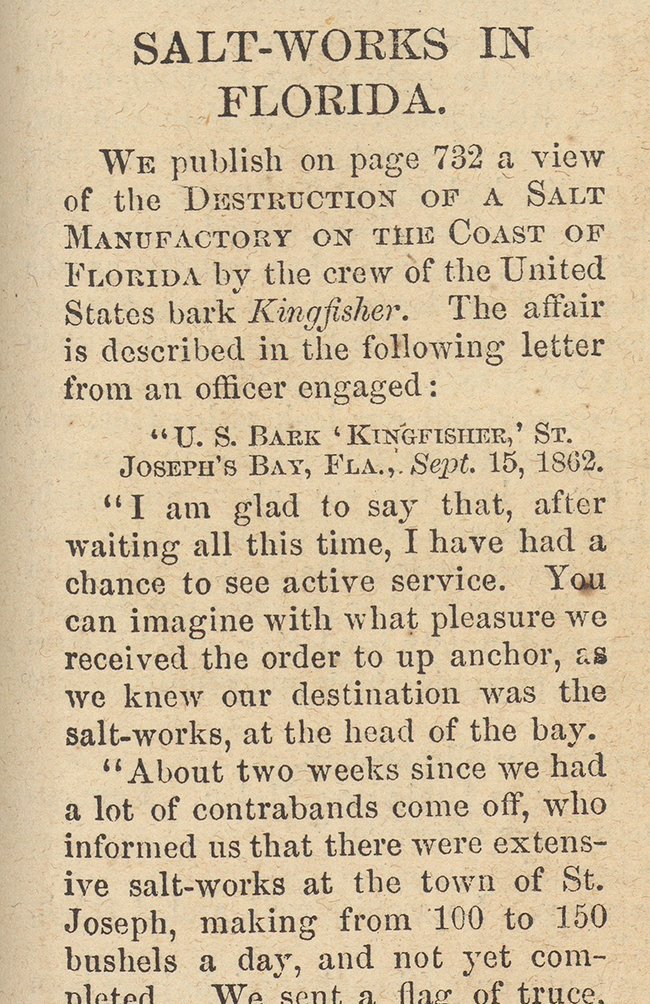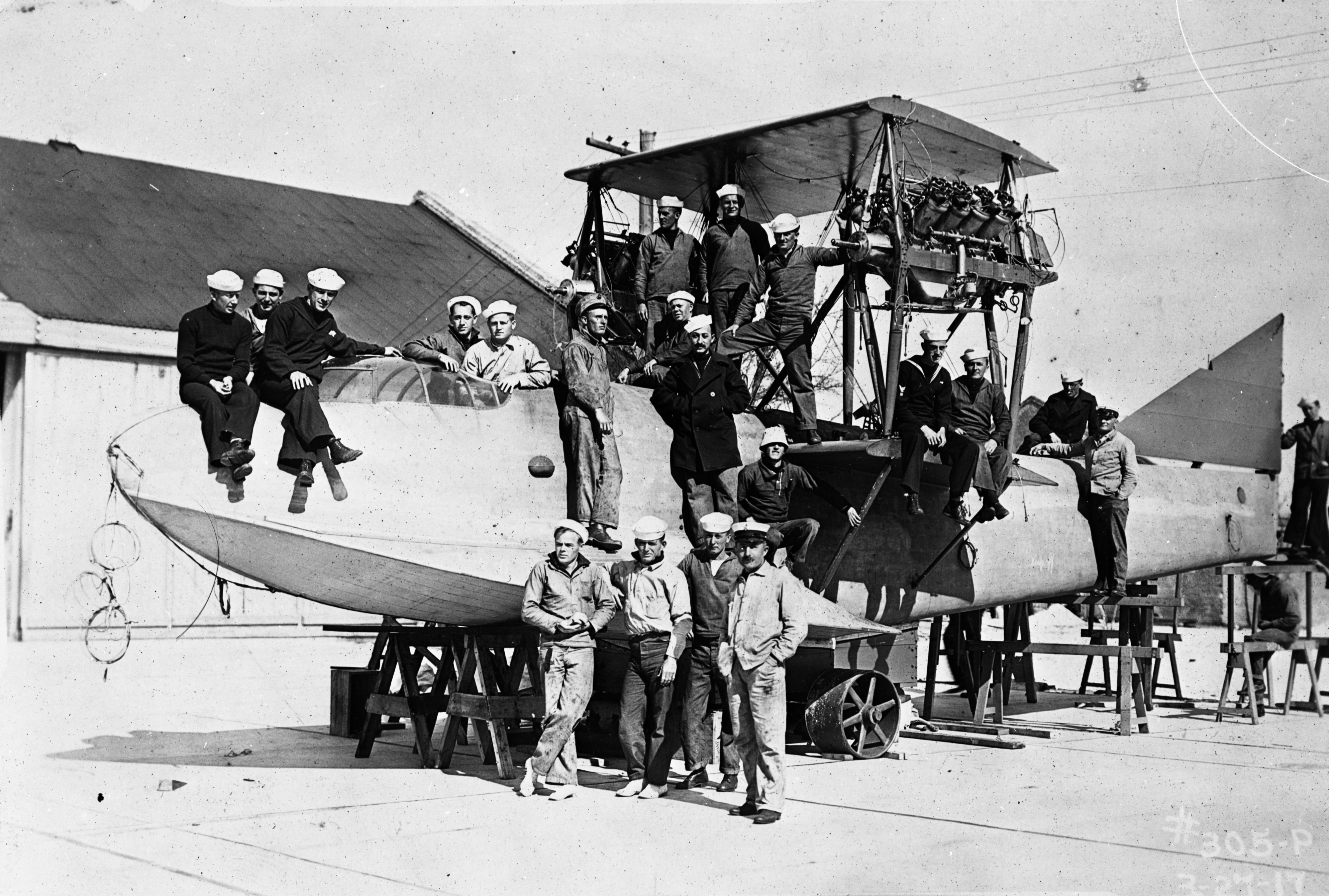Florida in the Civil War
Documents
Destruction of a Rebel Salt Factory, on the Florida Coast
The Confederate army’s meat supply was preserved with salt. With the Union blockade in place, the Confederate states turned to local sources for this important mineral. Salt production became a crucial endeavor for citizens of Florida.
Large salt making operations appeared all along the Florida coast. Workers would boil seawater in large metal vessels. Once the liquid had evaporated away, the salt would be left behind. Workers would then package it and haul it away.
From: "Salt-Works in Florida," Harper's Weekly 6, no. 307 (1862): 732-733.

SALT-WORKS IN FLORIDA
SALT-WORKS IN FLORIDA.
We publish on page 732 a view of the DESTRUCTION OF A SALT MANUFACTORY ON THE COAST OF FLORIDA by the crew of the United States bark Kingfisher. The affair is described in the following letter from an officer engaged:
"U.S. BARK 'KINGFISHER,' ST.
JOSEPH'S BAY, FLA., Sept. 15, 1862.
"I am glad to say that, after waiting all this time, I have had a chance to see active service. You can imagine with what pleasure we received the order to up anchor, as we knew our destination was the salt-works, at the head of the bay.
"About two weeks since we had a lot of contrabands come off, who informed us that there were extensive salt-works at the town of St. Joseph, making from 100 to 150 bushels a day, and not yet completed. We sent a flag of truce, and politely informed them that they must stop, or we should destroy them. They paid no attention to us, but continued their fire day and night.
"We got under way at daylight, sailed up the bay with a fair wind, and came to anchor about a quarter of a mile from the works. As we came in sight we could perceive an unusual excitement, and observed wagons driving inland at a furious pace. We gave them two hours to quit, and then fired a few shells into the works, which had the effect of bringing two contrabands to the beach with a salt-bag, which they waved most furiously. We sent a boat for them, and found out that they had removed about two hundred bags of salt and some provisions, but that every thing remained with this exception; and also the intelligence that there were about eighty guerrillas, mounted, three miles back in the country, and would probably be down to see what was going on. As soon as we obtained this information we manned all the boats, leaving enough men on board to man the battery. I had been ordered to take command of the picket-guard, and station them about a quarter of a mile inland, surrounding the works. You may imagine that was rather skittish work with twenty men to go into the woods out of sight of the ship; but we all drew up on the beach, the pickets in front (in all about fifty men), loaded muskets and fixed bayonets—the whole under command of Mr. Hallet, executive officer. We started, whistling Yankee Doodle. I advanced my men in a straight line to the other side of the works, when we entered the woods and extended our lines entirely around the place. The main body then began their work of destruction, and in less than two hours the whole place was in flames, and the machinery broken up.
"I send you a sketch. The whole coast of Florida is lined with these works of a smaller size. This one, when finished, would have been capable of making five hundred bushels a day, at $10 per bushel."
When the new military colony is fairly under way these salt factories will probably become of some national importance.

 Listen: The Bluegrass & Old-Time Program
Listen: The Bluegrass & Old-Time Program
